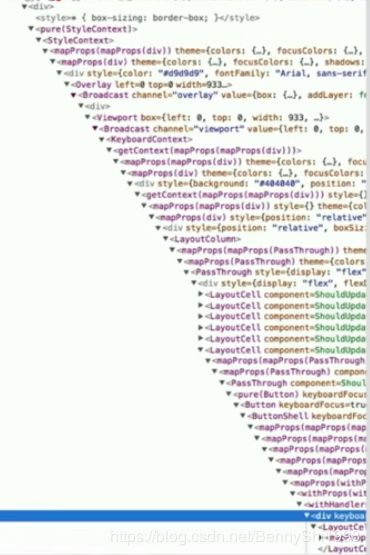三步快速上手Nextjs开发规范
-
前言
最近加入了梦寐以求的前端团队,主要的技术栈是TypeScript+React+Next+Mobx。然而,对于菜鸡的我之前做小项目,很少会选用到这么复杂的技术栈。以下都是大佬们给我代码Review的总结,请各位看官多多指点。
-
安装
Next.js 是一个轻量级的 React 服务端渲染应用框架。很多领先的公司都在使用。
Next,js提供了安装脚手架,直接一条命令直接安装。
npm init next-app
# or
yarn create next-app安装完成后会提示操作命令。
-
页面路由
Next.js默认是通过文件系统路由的(file-system routing)。
新建一个pages文件夹,里面每一个文件夹就是一个路由。
例如将./pages/index.tsx放到项目中,这就是网站的首页
export default () => Welcome to next.js!在./pages/a/index.js,则是路由/a
-
第一步 组件&&组件编写规范
能拆分一定要拆分,最理想情况是一个DIV一个组件
能拆分一定要拆分,最理想情况是一个DIV一个组件
能拆分一定要拆分,最理想情况是一个DIV一个组件
否则陷入嵌套地狱的时候就后悔莫及,
组件编写和原来的React一样。但是讲究编写规范,要将能拆分的都拆分,做到高内聚低耦合。
无状态的组件就可以用Function来写,传入参数即可。
函数组件用例:
import * as React from 'react'
export default (props): React.ReactElement => {
return (
{props.text}
)
}
有状态的组件就可以用Hook或者Class。更加推荐使用Hooks,Hooks在function里面实现了class的所有功能。粗浅的理解就是让函数组价变成状态类组件
Hook用例:
import React, { useState } from 'react';
function Example() {
// 声明一个叫 "count" 的 state 变量
const [count, setCount] = useState(0);
return (
You clicked {count} times
);
}有坑,Hook里面的state不能监听数组变化
Class用例:
class Example extends React.Component {
constructor(props) {
super(props);
this.state = {
count: 0
};
}
render() {
return (
You clicked {this.state.count} times
);
}
}-
第二步 样式编写规范
组件里面要就是 Component-Level CSS 要就是 CSS-in-JS ,尽量一个组件里只用className或者只用style
Component-Level CSS用例:
components/Button.module.css
/*
You do not need to worry about .error {} colliding with any other `.css` or
`.module.css` files!
*/
.error {
color: white;
background-color: red;
}components/Button.js
import styles from './Button.module.css'
export function Button() {
return (
)
}
CSS-in-JS用例:
function HiThere() {
return hi there
}
export default HiThere或者
function HelloWorld() {
return (
Hello world
scoped!
)
}
export default HelloWorld
-
第三步 全局状态使用规范
状态管理经过无数的考虑,选用Mobx,略过安装(搜索React+Mobx就有哦)。Mobx全局状态管理(全局变量)
尽量只在page里面使用Store,组件使用Props
创建一个store文件夹,在stores文件夹里面新建BStore.js:
import { action, observable } from 'mobx'
class BStore {
@observable i = 1
@action add(){
this.i = this.i + 1
}
}
export default BStore
在pages文件夹在上新建b.js,且在b.js上使用mobx的变量:
import * as React from 'react'
import { inject, observer } from 'mobx-react'
@inject('BStore')
@observer
class B extends React.Component {
render() {
return (
{
this.props.bStore.add()
}}
>
{this.props.bStore.i}
)
}
}
export default B

